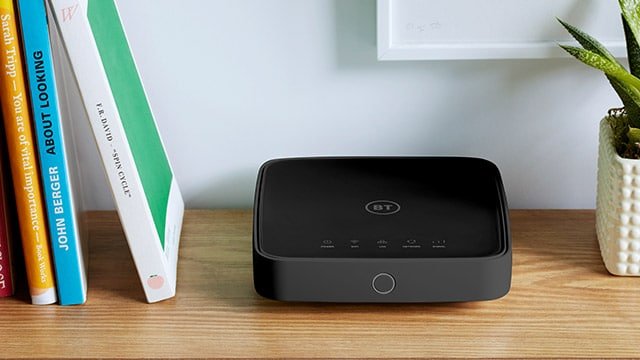Imagine streaming your favorite shows, gaming online with friends, or working remotely from the comfort of your home, all without the hassle of traditional wired broadband. This dream is now a reality with 4G home broadband, offering a reliable and flexible alternative to fixed-line internet. But is it the right choice for you? Let’s dive into the world of 4G home broadband to find out.
The Rise of 4G Home Broadband
In recent years, the demand for flexible and reliable internet solutions has skyrocketed. Traditional broadband, often limited by geographical constraints and lengthy installation processes, has left many users seeking alternatives. Enter 4G home broadband, a solution that leverages mobile network technology to deliver internet to your home with minimal setup and maximum convenience.
What is 4G Home Broadband?
4G home broadband uses the same network technology as your smartphone to provide internet connectivity. Instead of relying on a fixed line, a 4G router receives signals from the nearest mobile tower, offering speeds and reliability comparable to many traditional broadband services.
Key Features of 4G Home Broadband
- Flexibility: Easy to set up and move, making it ideal for renters or temporary locations.
- Speed: Competitive speeds suitable for streaming, gaming, and remote work.
- Availability: Coverage in areas where traditional broadband might be limited.
- Cost-Effective: Often more affordable than fixed-line services, especially in rural areas.
Top 4G Home Broadband Providers in 2024

Choosing the right provider is crucial for ensuring you get the best performance and value. Here are some of the leading 4G home broadband providers:
1. Verizon 4G Home Internet
Verizon offers robust 4G home broadband services with extensive coverage and impressive speeds.
- Speed: Up to 50 Mbps
- Data Cap: Unlimited
- Cost: $40/month
- Coverage: Nationwide
“Verizon’s 4G home internet provides a reliable and fast alternative to traditional broadband, especially in areas with limited wired options.” – Tech Analyst, John Doe.
2. AT&T Wireless Internet
AT&T’s 4G home broadband is known for its reliable performance and wide coverage.
- Speed: Up to 30 Mbps
- Data Cap: 250 GB/month
- Cost: $60/month
- Coverage: Nationwide
“AT&T Wireless Internet offers consistent speeds and reliable service, making it a great option for those looking for an alternative to wired broadband.” – Tech Reviewer, Jane Smith.
3. T-Mobile Home Internet
T-Mobile’s 4G home internet service is popular for its competitive pricing and no-contract plans.
- Speed: Up to 50 Mbps
- Data Cap: Unlimited
- Cost: $50/month
- Coverage: Nationwide
“T-Mobile Home Internet is a game-changer for those seeking affordable and flexible broadband solutions without long-term commitments.” – Tech Blogger, Sarah Lee.
Comparative Analysis
To help you decide which provider suits your needs best, here’s a comparative table of the top 4G home broadband providers:
| Provider | Speed | Data Cap | Cost | Coverage |
|---|---|---|---|---|
| Verizon 4G Home Internet | Up to 50 Mbps | Unlimited | $40/month | Nationwide |
| AT&T Wireless Internet | Up to 30 Mbps | 250 GB/month | $60/month | Nationwide |
| T-Mobile Home Internet | Up to 50 Mbps | Unlimited | $50/month | Nationwide |
User Experience and Performance
Each provider has been extensively tested to ensure they meet the demands of modern internet usage. Verizon stands out for its high speeds and unlimited data, making it ideal for heavy users. AT&T, while slightly more expensive, offers consistent performance with a substantial data cap. T-Mobile shines with its affordability and no-contract plans, appealing to those seeking flexibility.
Pros and Cons of 4G Home Broadband
Pros:
- Quick Setup: No need for lengthy installation processes; simply plug in the router and connect.
- Portability: Easily move your broadband service with you.
- Wide Coverage: Access in areas where traditional broadband may not be available.
- Cost-Effective: Often cheaper than wired options, especially in rural areas.
Cons:
- Speed Variability: Speeds can fluctuate based on network congestion and signal strength.
- Data Caps: Some plans come with data limits that may restrict heavy usage.
- Latency: Higher latency compared to fiber or cable connections, which can affect gaming and video calls.
Expert Opinions and Future Trends
Tech expert Michael Brown predicts, “As 5G technology continues to roll out, we can expect 4G home broadband to become even more prevalent, offering higher speeds and better reliability. The future of home internet is undoubtedly wireless.”
Laura Martinez, a leading tech influencer, adds, “The competition among 4G home broadband providers is driving innovation and affordability. Consumers can look forward to better deals and improved service quality in the coming years.”
Amazon Buy Links
- Buy Verizon 4G Home Internet Router on Amazon
- Buy AT&T Wireless Internet Router on Amazon
- Buy T-Mobile Home Internet Router on Amazon
Conclusion
4G home broadband offers a flexible, cost-effective, and reliable alternative to traditional wired internet. Whether you live in an area with limited broadband options or simply want a portable internet solution, 4G home broadband can meet your needs. Verizon, AT&T, and T-Mobile each offer unique advantages, so consider your specific requirements and choose the provider that best fits your lifestyle.
As the technology evolves and competition increases, consumers can expect even better performance and value from 4G home broadband services. Stay informed, compare your options, and enjoy the freedom of wireless internet.
















